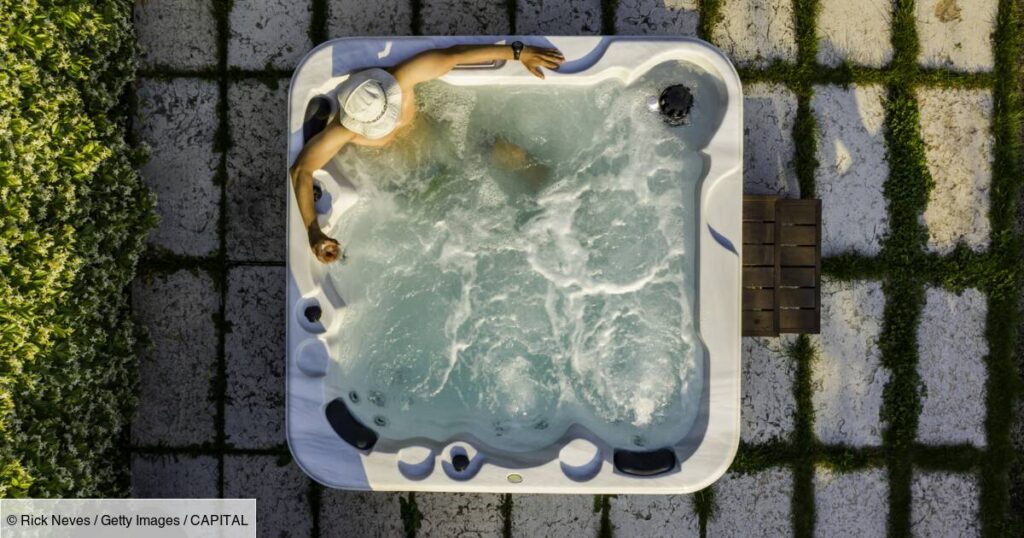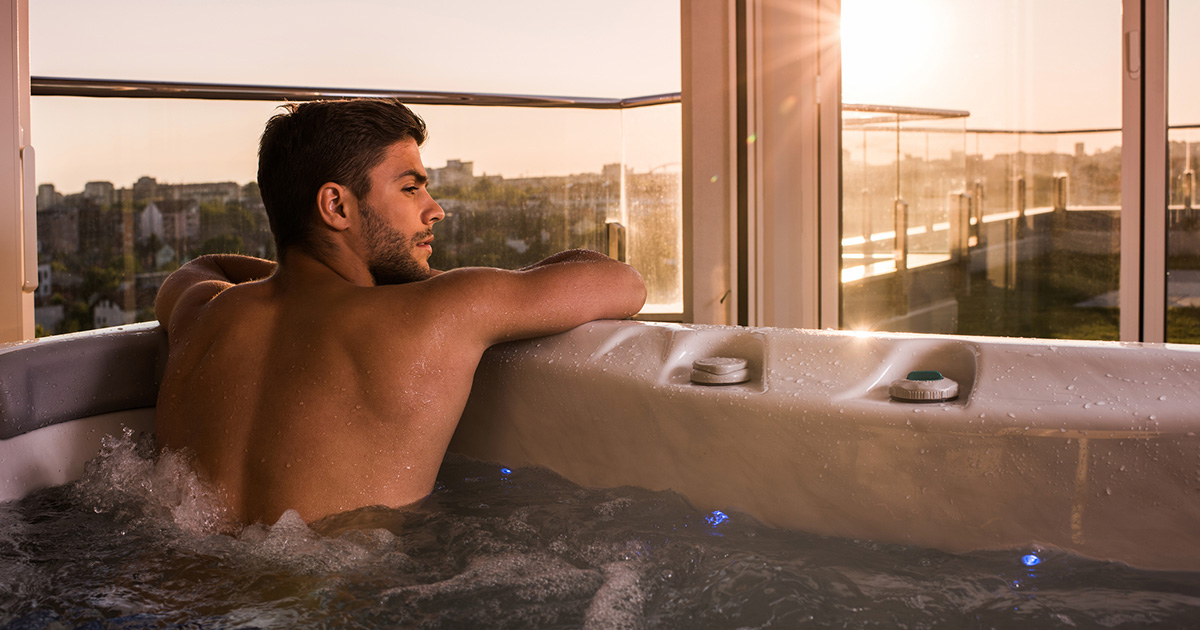This question revolves around the potential health risks associated with using Jacuzzis, also known as hot tubs. Jacuzzis are heated, jetted tubs that people often use for relaxation and hydrotherapy. However, concerns have been raised about the effects of prolonged exposure to hot water and the chemicals used to maintain Jacuzzis.
Are Jacuzzis Bad For You? While soaking in a Jacuzzi can be a soothing experience, it’s essential to consider the potential drawbacks. We’ll delve into the scientific evidence and expert opinions to help you make an informed decision about whether to enjoy these hot tubs without worrying about your well-being.
Are Jacuzzis Bad For You? Additionally, we will touch upon the importance of proper maintenance, water quality, and hygiene when using Jacuzzis. Ensuring that your Jacuzzi is clean and well-maintained can significantly reduce the likelihood of any negative health effects, allowing you to enjoy the relaxation and therapeutic benefits they offer without unnecessary concerns.
History of Jacuzzi Development
The Jacuzzi, a name now synonymous with luxury and relaxation, has an intriguing history. It began in the early 20th century with the Jacuzzi brothers, who initially focused on aviation and agricultural pumps. In the 1950s, to aid a family member with arthritis, they created a hydrotherapy pump. This innovation led to the first whirlpool bath, launching the Jacuzzi as a household name.
Over the years, Jacuzzi technology evolved, integrating advanced hydrotherapy, modern designs, and digital controls. This evolution transformed Jacuzzis from medical devices to symbols of leisure and wellness. Today, they are a staple in spas and homes worldwide, celebrated for their relaxing properties.
Popular Misconceptions About Jacuzzis
A common misconception is that Jacuzzis are just luxury items without real benefits. In reality, they offer more than just leisure; they provide therapeutic advantages. Another widespread myth is that Jacuzzis are significant energy consumers. While they do use energy, modern designs are increasingly energy-efficient, debunking this myth.
Additionally, many believe Jacuzzis are breeding grounds for bacteria. However, with proper maintenance and hygiene, Jacuzzis remain safe and hygienic. It’s essential to understand these facts to appreciate the true value and potential of Jacuzzis.
Physical Health Benefits of Jacuzzis
Jacuzzis offer numerous physical health benefits. The warm water and jets can soothe muscle aches, reduce stiffness, and improve circulation. This hydrotherapy can be particularly beneficial for those with arthritis or chronic pain. The buoyancy of the water also reduces strain on joints and muscles, promoting relaxation and pain relief.
Another key benefit is the improvement in sleep quality. The warmth and relaxation experienced in a Jacuzzi can facilitate a deeper, more restful sleep. This can be especially beneficial for those suffering from sleep disorders or stress-related insomnia.
| Health Benefit | Description | Relevant Studies |
| Muscle Relaxation | Soothes aches and reduces stiffness | Journal of Rheumatology, 2018 |
| Improved Circulation | Enhances blood flow, benefiting heart and muscles | American Heart Association, 2019 |
| Joint Pain Relief | Reduces pain for arthritis sufferers | Arthritis Foundation, 2020 |
| Sleep Improvement | Aids in deeper, more restful sleep | National Sleep Foundation, 2021 |
Potential Health Risks Associated with Jacuzzi Use
While Jacuzzis offer many benefits, there are potential health risks, especially if not used properly. Overexposure to hot water can lead to heat-related illnesses like heat stroke or heat exhaustion. It’s crucial to limit time spent in a Jacuzzi and stay hydrated.
Another risk is the spread of infections. Without proper cleaning, Jacuzzis can harbor bacteria, leading to skin infections or respiratory issues. Regular maintenance and water treatment are essential to mitigate these risks.
Impact on Skin Health
Jacuzzis can have both positive and negative effects on skin health. The warm water can open pores, aiding in detoxification and potentially improving skin conditions like eczema. However, prolonged exposure to hot water and chemicals can strip the skin of natural oils, leading to dryness and irritation.
To maximize benefits and minimize risks, it’s advised to keep Jacuzzi sessions moderate in length and follow up with proper skin hydration. This balance ensures the positive aspects of Jacuzzi use on skin health are harnessed without the drawbacks.
Jacuzzis and Heart Health
Jacuzzis can positively impact heart health by improving circulation and reducing blood pressure. The warm water causes blood vessels to dilate, enhancing blood flow and easing cardiac workload. This can be particularly beneficial for those with circulatory issues.
However, for individuals with pre-existing heart conditions, caution is advised. The increased heart rate induced by hot water can be a strain for some. Consulting with a healthcare provider before using a Jacuzzi is recommended for those with heart concerns.
Hygiene Concerns in Jacuzzis
Hygiene in Jacuzzis is paramount to prevent health risks. Bacteria and microorganisms can thrive in warm, stagnant water. Regular cleaning and proper chemical balance are crucial to maintaining a hygienic environment. Users should shower before entering and avoid using a Jacuzzi when ill.
Additionally, the water should be regularly tested and treated with the appropriate chemicals. Proper filtration and circulation systems are essential to keep the water clean and safe for all users.
Mental Health Benefits of Jacuzzi Use
Jacuzzis are not just beneficial for physical health but also mental well-being. The relaxation they provide can significantly reduce stress and anxiety. The calming effect of warm water and massage jets can induce a state of mental relaxation, easing the symptoms of stress and anxiety.
Moreover, the therapeutic effects of hydrotherapy can aid in the treatment of depression and improve overall mood. Regular use of a Jacuzzi can be a valuable complement to other mental health treatments, offering a peaceful retreat for the mind.
Safety Tips for Jacuzzi Users
Safety is paramount when using a Jacuzzi. It’s crucial to avoid alcohol and medications that can cause drowsiness while in a Jacuzzi. This reduces the risk of accidents and drowning. Also, it’s important to stay hydrated, as the hot environment can lead to dehydration.
Users should also be mindful of the temperature settings. The water should not exceed 104°F (40°C) to prevent burns and heat-related illnesses. Following these safety tips ensures a beneficial and safe Jacuzzi experience.
Comparative Analysis: Jacuzzis vs. Traditional Baths
Comparing Jacuzzis to traditional baths reveals distinct advantages and disadvantages. Jacuzzis offer therapeutic benefits like massage jets and consistent heat, which traditional baths lack. This makes Jacuzzis more effective for pain relief and relaxation.
However, traditional baths are more accessible, require less maintenance, and have a lower environmental impact. They are simpler and can be equally relaxing, although they lack the advanced therapeutic features of Jacuzzis. The choice depends on personal preferences and specific health needs.
Environmental Impact of Jacuzzis

The environmental impact of Jacuzzis is an important consideration. They consume significant amounts of water and energy, contributing to a larger ecological footprint. However, advancements in technology are reducing these impacts, with more energy-efficient models and better water conservation methods.
Users can mitigate the environmental impact by choosing eco-friendly models, using energy-efficient settings, and implementing regular maintenance to ensure efficient operation. Responsible usage and awareness can greatly reduce the environmental impact of Jacuzzi use.
Recommendations for Responsible Jacuzzi Use
To use Jacuzzis responsibly, users should follow guidelines for maintenance, hygiene, and safety. Regular cleaning, proper chemical treatment, and water testing are essential. It’s also important to be mindful of the time spent in a Jacuzzi and to stay hydrated.
Environmental consciousness is also key. Opting for energy-efficient models, using covers to retain heat, and limiting usage can help reduce the ecological footprint. Responsible use ensures that the benefits of Jacuzzis are enjoyed without undue harm to health or the environment.
FAQS
Can soaking in a Jacuzzi lead to skin issues?
Soaking in a Jacuzzi can potentially lead to skin problems like rashes and irritation if the water is not properly maintained. Proper hygiene and water quality are essential to avoid these issues.
Can spending too much time in a Jacuzzi be harmful?
Spending excessive time in a Jacuzzi, especially in very hot water, can lead to overheating, dehydration, and dizziness. It’s important to limit your time and stay hydrated when using a hot tub.
Are there any cardiovascular risks associated with Jacuzzi use?
Using a Jacuzzi can temporarily increase your heart rate and blood pressure. If you have cardiovascular issues or medical conditions, it’s advisable to consult a doctor before using a hot tub.
Can Jacuzzis affect fertility or sperm health?
Prolonged exposure to high water temperatures in Jacuzzis may affect sperm health in men. It’s advisable for men trying to conceive to avoid extended hot tub sessions.
Is it safe to use a Jacuzzi during pregnancy?
Pregnant women should exercise caution when using Jacuzzis, especially in the first trimester. High water temperatures can be harmful to the developing fetus. Consult with a healthcare provider before using a hot tub during pregnancy.
ConclusionIn the end, the safety of using Jacuzzis depends on various factors. While they can provide relaxation and relief for some, it’s crucial to be aware of potential risks. Proper maintenance, regular breaks to avoid overheating, and attention to water quality can help mitigate some of these concerns. Always consult with a healthcare professional if you have specific health conditions or concerns about using a Jacuzzi.
Ultimately, the question Are Jacuzzis Bad For You? doesn’t have a one-size-fits-all answer. It’s about making informed choices that align with your health and well-being. So, whether you choose to enjoy a relaxing soak in a Jacuzzi or opt for alternative methods of relaxation, remember to prioritize safety and moderation.








